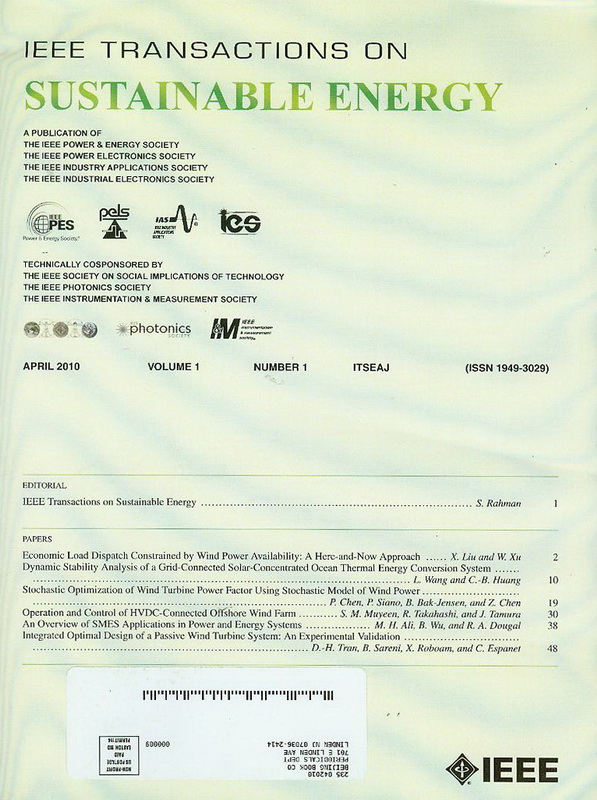A Coordinated Adaptive SMC Method for Frequency Regulation Control in Power Systems With Multiple Wind Farms
IF 10
1区 工程技术
Q1 ENERGY & FUELS
引用次数: 0
Abstract
The extensive integration of renewable energy resources inevitably gives rise to the complex and uncertain power system, where the somber matter of frequency instability becomes apparent. This article presents a coordinated adaptive radial basis function neural network (RBFNN)-based sliding mode control (CAR-SMC) to reduce the frequency deviation and oscillation of the uncertain power system comprising multiple wind farms. Firstly, the SMC is aimed at establishing the upper layer control law of the frequency regulation controllers. Then, the uncertainties are represented with RBFNN, and an adaptive law is employed to estimate the uncertainties online rapidly and realize the free-chattering of SMC. Furthermore, since a single SMC is only capable of handling a single control input system, a power distribution law based on momentum is proposed to implement the multiple control inputs of the AR-SMC, and also coordinate the frequency regulation abilities of wind turbines and energy storage systems (ESSs). Eventually, the proposed CAR-SMC is validated on a modified IEEE 39-bus system. The simulation results demonstrate that CAR-SMC can enhance the frequency stability in the presence of disturbances and uncertainties during steady-state operation, as well as in under-frequency and over-frequency scenarios.多风电场电力系统频率调节的协调自适应SMC方法
可再生能源的广泛整合不可避免地导致电力系统的复杂性和不确定性,其中频率不稳定的严峻问题变得明显。本文提出了一种基于协调自适应径向基函数神经网络(RBFNN)的滑模控制方法(CAR-SMC),以减少由多个风电场组成的不确定电力系统的频率偏差和振荡。首先,SMC旨在建立频率调节控制器的上层控制律。然后,将不确定性用RBFNN表示,利用自适应律在线快速估计不确定性,实现SMC的自由抖振;针对单个SMC只能处理单一控制输入系统的特点,提出了基于动量的功率分配律来实现AR-SMC的多控制输入,并协调风电机组和储能系统的频率调节能力。最后,在改进的IEEE 39总线系统上验证了所提出的CAR-SMC。仿真结果表明,CAR-SMC在稳态运行中存在干扰和不确定性的情况下,以及低频和高频情况下,都能提高频率的稳定性。
本文章由计算机程序翻译,如有差异,请以英文原文为准。
求助全文
约1分钟内获得全文
求助全文
来源期刊

IEEE Transactions on Sustainable Energy
ENERGY & FUELS-ENGINEERING, ELECTRICAL & ELECTRONIC
CiteScore
21.40
自引率
5.70%
发文量
215
审稿时长
5 months
期刊介绍:
The IEEE Transactions on Sustainable Energy serves as a pivotal platform for sharing groundbreaking research findings on sustainable energy systems, with a focus on their seamless integration into power transmission and/or distribution grids. The journal showcases original research spanning the design, implementation, grid-integration, and control of sustainable energy technologies and systems. Additionally, the Transactions warmly welcomes manuscripts addressing the design, implementation, and evaluation of power systems influenced by sustainable energy systems and devices.
 求助内容:
求助内容: 应助结果提醒方式:
应助结果提醒方式:


